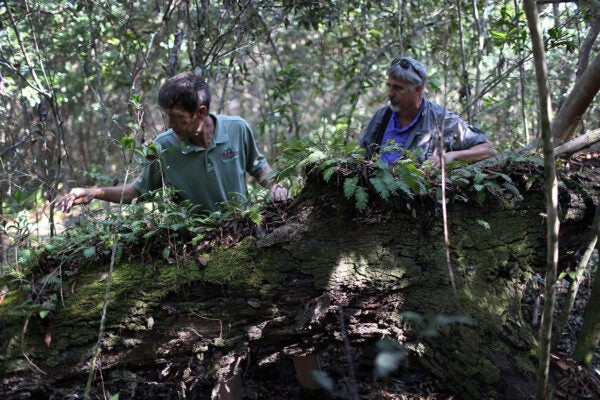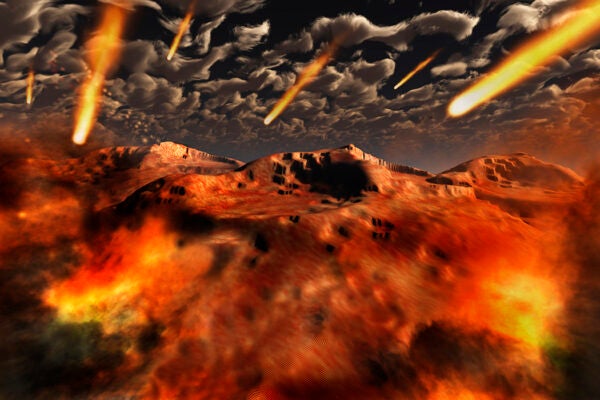Katherine Mansfield and Anton Chekhov
Living in exile in Germany, the young New Zealand writer Katherine Mansfield found solace in studying—and copying—Chekhov’s short stories.
Witnessing and Professing Climate Professionals
What are scientists to do? Psychiatrist Robert Jay Lifton and historian of science Naomi Oreskes consider the social responsibility of climate scientists.
The Power of the Veil for Spanish Women
In sixteenth-century Spain, veiling allowed women to move freely through cities while keeping their identities private.
Crucial Building Blocks of Life on Earth Can More Easily Form in Outer Space
A special group of molecules, known as peptides, can form more easily under the conditions of space than those found on Earth.
Before Palmer Penmanship
The creation and propagation of standard penmanship in the American education system is almost as old as the United States itself.
Elephant Executions
At the height of circus animal acts in the late nineteenth century, animals who killed their captors might be publicly executed for their “crimes.”
Scaffolding a Research Project with JSTOR
Use JSTOR resources and this five-step process to help students learn how to complete a scholarly research project.
Making Implicit Racism
In the first few years of life, children learn much from the observation of the adults around them—including their biases.
The Diverse Shamanisms of South America
In Brazil, Indigenous people and city-dwellers of all backgrounds mix various shamanic practices, including rituals imported from North America and elsewhere.
Time in a Box
Humans like to seal collections of ephemera in containers that they then hide in soon-to-be-forgotten places. Whither the time capsule?









